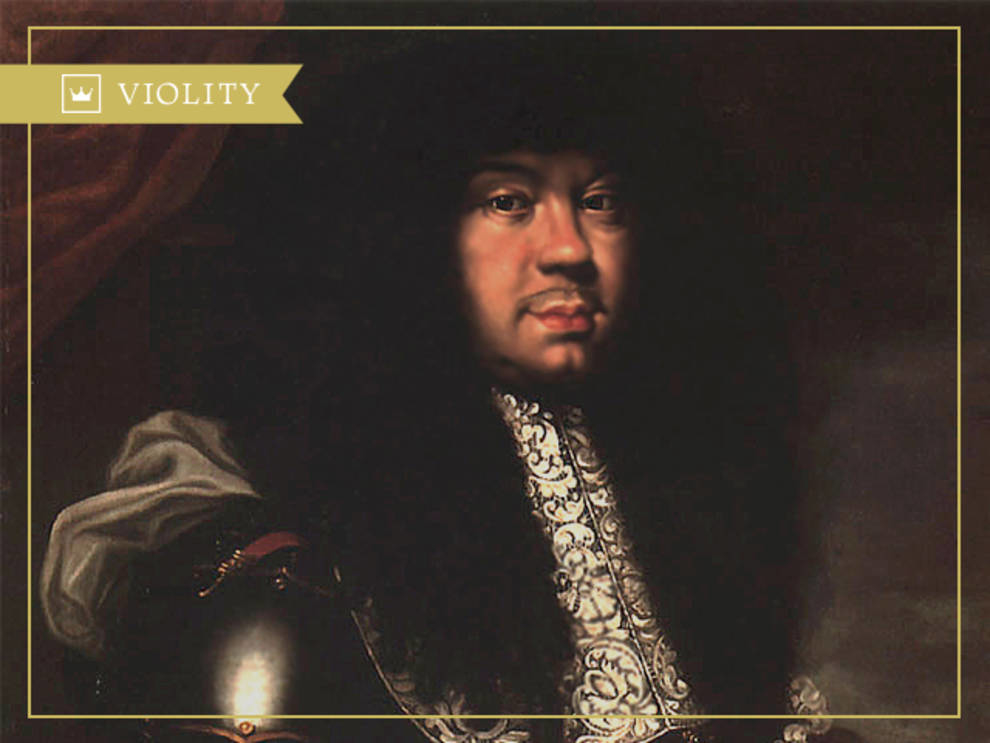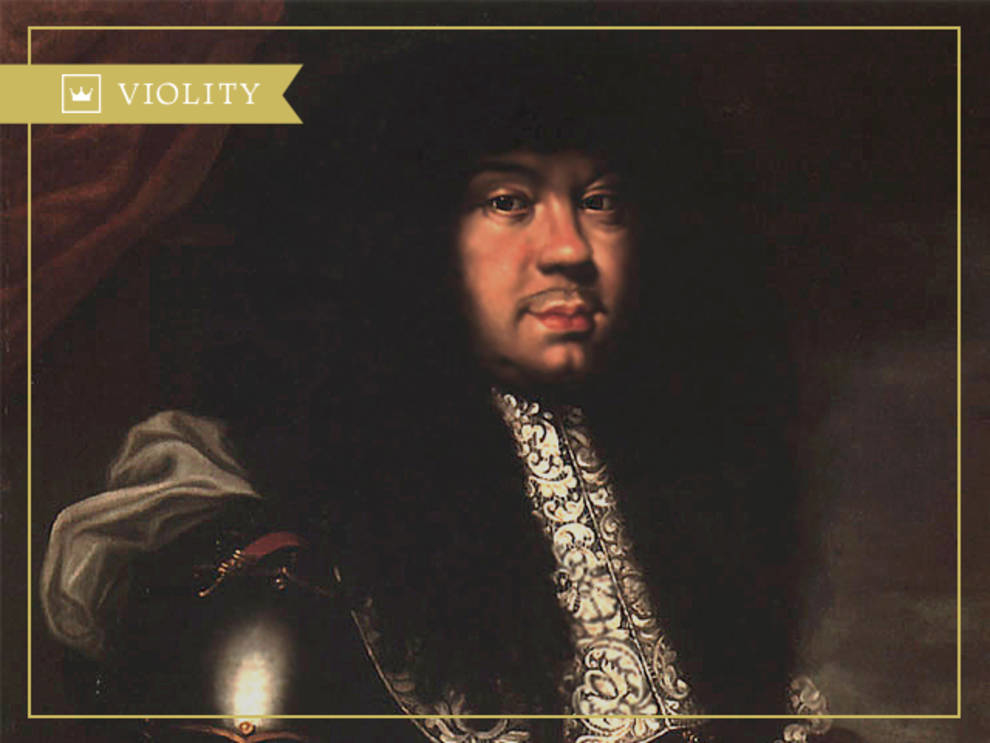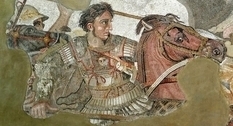
Mikhal Korybut Vyshnevetsky is a Polish king
Three months after the conclusion of the Andrusovo truce, according to which the Polish-Lithuanian Commonwealth lost the Left Bank of Ukraine, wife Mary Louise died by King Jan II Casimir Vasa. She was his only support in political affairs.
Unable to cope with the opposition of the magnates, dissatisfied with his policies, or with personal grief, on September 16, 1668, he abdicated the throne and left for France, where he became the abbot of the Jesuit monastery of St. Martin in the city of Nevers.
For some time the French crown prince Louis II of Bourbon-Condé was a new candidate for the Polish throne, but the “French party” lost. Bishop Chelmno and sub-chancellor corona Andrzej Olshovsky made a lot of effort to support the candidacy of Michal Koribut Vishnevetsky.
After the death of his father in 1651, Michal was brought up first by the brother of King John II of Casimir, Bishop of Plock, Karol Ferdinand Waza, and later by Sandomierz Governor Jan Zamoyski. Four years he studied at Prague University, and on his return in 1660 to his homeland, he rose to the rank of colonel and participated in the Polish-Russian war of 1654-1667.

In addition to Michal Vishnevetsky, four more foreigners were candidates for the throne, but given the sad experience of this kind of monarchs, the majority of deputies of the coronation seim against the will of the pro-French tycoons voted on June 19, 1669 for "their own." They hoped that the king, inexperienced in state affairs, would not threaten the “golden liberties of the gentry”. On July 6, Michal Vyshnevetsky swore allegiance to the Pacta conventa (a treaty between the “Polish people” and the king) and on September 29 he crowned himself to the throne in Krakow.
Supporters of the pro-French party led by primate Nikolai Prazhmovsky and Russian commander Stanislav Yablonovsky did not accept defeat. Without waiting for the end of the coronation Diet, they transferred the political opposition to the county congress of the local gentry, which in April 1670 demanded the convening of a general Diet. Because of the confrontation, it was not possible to approve even the defense budget.
All this happened before the threat of a new war with the Ottoman Empire, and even with its beginning in 1672, confederations arose in various regions of the Commonwealth, which defended their own political interests.
Not ready for further confrontation, the Polish-Lithuanian Commonwealth was forced to conclude a peace treaty on October 28 in Buchach, under which Podolsk voivodeship lost, recognized the authority of Peter Doroshenko in Bratslavshchina and the Southern Kyiv region and agreed to pay the Turks annually 22,000 gold ducats.
Unable to cope with the opposition of the magnates, dissatisfied with his policies, or with personal grief, on September 16, 1668, he abdicated the throne and left for France, where he became the abbot of the Jesuit monastery of St. Martin in the city of Nevers.
For some time the French crown prince Louis II of Bourbon-Condé was a new candidate for the Polish throne, but the “French party” lost. Bishop Chelmno and sub-chancellor corona Andrzej Olshovsky made a lot of effort to support the candidacy of Michal Koribut Vishnevetsky.
After the death of his father in 1651, Michal was brought up first by the brother of King John II of Casimir, Bishop of Plock, Karol Ferdinand Waza, and later by Sandomierz Governor Jan Zamoyski. Four years he studied at Prague University, and on his return in 1660 to his homeland, he rose to the rank of colonel and participated in the Polish-Russian war of 1654-1667.

Photo © jnsm.com.ua
In addition to Michal Vishnevetsky, four more foreigners were candidates for the throne, but given the sad experience of this kind of monarchs, the majority of deputies of the coronation seim against the will of the pro-French tycoons voted on June 19, 1669 for "their own." They hoped that the king, inexperienced in state affairs, would not threaten the “golden liberties of the gentry”. On July 6, Michal Vyshnevetsky swore allegiance to the Pacta conventa (a treaty between the “Polish people” and the king) and on September 29 he crowned himself to the throne in Krakow.
Supporters of the pro-French party led by primate Nikolai Prazhmovsky and Russian commander Stanislav Yablonovsky did not accept defeat. Without waiting for the end of the coronation Diet, they transferred the political opposition to the county congress of the local gentry, which in April 1670 demanded the convening of a general Diet. Because of the confrontation, it was not possible to approve even the defense budget.
All this happened before the threat of a new war with the Ottoman Empire, and even with its beginning in 1672, confederations arose in various regions of the Commonwealth, which defended their own political interests.
Not ready for further confrontation, the Polish-Lithuanian Commonwealth was forced to conclude a peace treaty on October 28 in Buchach, under which Podolsk voivodeship lost, recognized the authority of Peter Doroshenko in Bratslavshchina and the Southern Kyiv region and agreed to pay the Turks annually 22,000 gold ducats.


